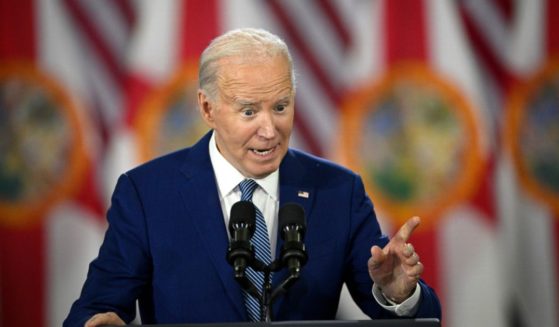Mattis Warns China, Stop Installing Weapons or There Will Be 'Consequences'
The South China Sea could become the location for a showdown between China and the United States, Defense Secretary James Mattis warned Saturday.
Mattis made the remark at Shangri La Dialogue, an annual gathering of 40 nations in Singapore, Breitbart reported.
“China’s militarization of artificial features in the South China Sea includes the deployment of anti-ship missiles, surface-to-air missiles, electronic jammers, and more recently, the landing of bomber aircraft at Woody Island,” Mattis said, referring to a man-made island created by China.
“Despite China’s claims to the contrary, the placement of these weapon systems is tied directly to military use for the purposes of intimidation and coercion.”
“China’s militarization … is also in direct contradiction to President Xi Jinping’s 2015 public assurances in the White House Rose Garden that they would not do this,” Mattis continued.
China’s Lieutenant General He Lei lashed out against the defense secretary’s comments, telling the conference attendees that Mattis was out of line.
“Any irresponsible comments from other countries cannot be accepted,” he said. China has a “sovereign and legal right for China to place our army and military weapons there. We see any other country that tries to make noise about this as interfering in our internal affairs.”
China, Vietnam, the Philippines, Malaysia, Taiwan and Brunei all have competing claims in the South China Sea, which is one of the world’s busiest trade routes.
Mattis said that China’s actions will determine whether the United States works with China or against it.
“We are prepared to support China’s choices if they promote long-term peace and prosperity for all in this dynamic region,” Mattis said. “Yet China’s policy in the South China Sea stands in stark contrast to the openness our strategy promotes. It calls into question China’s broader goals.”
Mattis also warned China against “ignoring the international community.”
“I believe there are much larger consequences in the future,” he said, although he did not outline those consequences.
In closing, Mattis made it clear that the U.S. will set its own course in regard to its Asia policy and will not unilaterally support any one nation.
“The U.S. offers strategic partnerships — not strategic dependence,” he said. “For as President Trump said in Da Nang, we will never ask our partners to surrender their sovereignty or intellectually property. We don’t dream of domination.”
“The U.S. will continue to pursue a constructive, results-oriented relationship with China, cooperating when possible and competing vigorously where we must … of course we recognize any sustainable Indo-Pacific order has a role for China.”
“Make no mistake: America is in the Indo-Pacific to stay. This is our priority theater,” he concluded.
Mattis said he plans to travel to China later this month.
Truth and Accuracy
We are committed to truth and accuracy in all of our journalism. Read our editorial standards.












